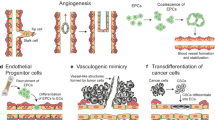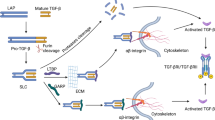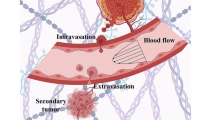Abstract
Thrombomodulin (TM) is highly expressed in endothelial cells and plays the key role in maintaining physical homeostasis. In addition, many pieces of evidence also show that TM contains the diagnostic value for malignant diseases. TM has been found to correlate with metastatic status in multiple cancers, but its role in prostate cancer progression remains unclear. TM expression was determined in prostate cancer cells (DU-145 and PC-3 cells) using real-time PCR and Western blotting. TM expression was manipulated in prostate cancer cells using TM-specific shRNA and an overexpression system. The proliferation, adhesion, and migratory ability of prostate cancer cells expressing various TM levels were determined using the x’Celligence biosensor system and a transwell migration assay. Higher levels of TM transcription and translation were found in DU-145 cells and were negatively correlated with the low migratory ability of DU-145 cells. After silencing TM expression in DU-145 cells, cell growth decreased, but cell adhesion and migration dramatically increased. TM overexpression in PC-3 cells reduced their metastatic ability. We investigated the possible mechanisms of this phenomenon and determined that the enhanced cell migration was mediated through the expression of E-cadherin and vimentin. TM may be a modulator of hormone-independent prostate cancer (HIPC) metastasis. The downregulation of TM expression enhanced the migratory ability of these cells via an increase in vimentin expression and a decrease in E-cadherin expression.




Similar content being viewed by others
References
Esmon CT. Inflammation and thrombosis. J Thromb Haemost. 2003;1:1343–8.
Sierko E, Wojtukiewicz MZ, Zawadzki R, Zimnoch L, Kisiel W. Expression of protein C (PC), protein S (PS) and thrombomodulin (TM) in human colorectal cancer. Thromb Res. 2010;125:e71–5.
Koutsi A, Papapanagiotou A, Papavassiliou AG. Thrombomodulin: from haemostasis to inflammation and tumourigenesis. Int J Biochem Cell Biol. 2008;40:1669–73.
Nocchi L, Tomasetti M, Amati M, Neuzil J, Santarelli L, Saccucci F. Thrombomodulin is silenced in malignant mesothelioma by a poly(ADP-ribose) polymerase-1-mediated epigenetic mechanism. J Biol Chem. 2011;286:19478–88.
Kao YC, Wu LW, Shi CS, Chu CH, Huang CW, Kuo CP, et al. Downregulation of thrombomodulin, a novel target of snail, induces tumorigenesis through epithelial-mesenchymal transition. Mol Cell Biol. 2010;30:4767–85.
Huang MT, Wei PL, Liu JJ, Liu DZ, Huey-Chun H, An J, et al. Knockdown of thrombomodulin enhances HCC cell migration through increase of ZEB1 and decrease of E-cadherin gene expression. Ann Surg Oncol. 2010;17:3379–85.
Niimi S, Harashima M, Takayama K, Hara M, Hyuga M, Seki T, et al. Thrombomodulin enhances the invasive activity of mouse mammary tumor cells. J Biochem. 2005;137:579–86.
Oxley J, Abbott C. Thrombomodulin immunostaining and ductal carcinoma of the prostate. Histopathology. 1998;33:391–2.
Mhawech P, Uchida T, Pelte MF. Immunohistochemical profile of high-grade urothelial bladder carcinoma and prostate adenocarcinoma. Human Pathol. 2002;33:1136–40.
Chuang AY, DeMarzo AM, Veltri RW, Sharma RB, Bieberich CJ, Epstein JI. Immunohistochemical differentiation of high-grade prostate carcinoma from urothelial carcinoma. Am J Surg Pathol. 2007;31:1246–55.
Jemal A, Siegel R, Xu J, Ward E. Cancer statistics, 2010. CA Cancer J Clin. 2010;60:277–300.
Jemal A, Bray F, Center MM, Ferlay J, Ward E, Forman D. Global cancer statistics. CA Cancer J Clin. 2011;61:69–90.
Nishiyama T. Androgen deprivation therapy in combination with radiotherapy for high-risk clinically localized prostate cancer. J Steroid Biochem Mol Biol. 2012;129:179–90.
Moul JW, Dawson N. Quality of life associated with treatment of castration-resistant prostate cancer: a review of the literature. Cancer Investig. 2012;30:1–12.
Wei PL, Chang YJ, Ho YS, Lee CH, Yang YY, An J, et al. Tobacco-specific carcinogen enhances colon cancer cell migration through alpha7-nicotinic acetylcholine receptor. Ann Surg. 2009;249:978–85.
Lien YC, Wang W, Kuo LJ, Liu JJ, Wei PL, Ho YS, et al. Nicotine promotes cell migration through alpha7 nicotinic acetylcholine receptor in gastric cancer cells. Ann Surg Oncol. 2011;18:2671–9.
Wu CT, Wang WC, Chen MF, Su HY, Chen WY, Wu CH, et al. Glucose-regulated protein 78 mediates hormone-independent prostate cancer progression and metastasis through maspin and COX-2 expression. Tumour Biol J Int Soc Oncodev Biol Med. 2014;35:195–204.
Wei PL, Kuo LJ, Wang W, Lin FY, Liu HH, How T, et al. Silencing of glucose-regulated protein 78 (GRP78) enhances cell migration through the upregulation of vimentin in hepatocellular carcinoma cells. Ann Surg Oncol. 2012;19 Suppl 3:S572–9.
Dong D, Ni M, Li J, Xiong S, Ye W, Virrey JJ, et al. Critical role of the stress chaperone GRP78/BiP in tumor proliferation, survival, and tumor angiogenesis in transgene-induced mammary tumor development. Cancer Res. 2008;68:498–505.
Sowinski S, Jolly C, Berninghausen O, Purbhoo MA, Chauveau A, Kohler K, et al. Membrane nanotubes physically connect T cells over long distances presenting a novel route for HIV-1 transmission. Nat Cell Biol. 2008;10:211–9.
Wei PL, Kuo LJ, Huang MT, Ting WC, Ho YS, Wang W, An J, Chang YJ. Nicotine enhances colon cancer cell migration by induction of fibronectin. Ann Surg Oncol. 2011
Deryugina EI, Strongin A, Yu C, Bourdon MA. A novel monoclonal antibody, L1A3, is directed to the functional site of the alpha v integrin subunit. Hybridoma. 1996;15:279–88.
Li YH, Chung HC, Luo CY, Chao TH, Shyu KG, Shi GY, et al. Thrombomodulin is upregulated in cardiomyocytes during cardiac hypertrophy and prevents the progression of contractile dysfunction. J Card Fail. 2010;16:980–90.
Hanly AM, Winter DC. The role of thrombomodulin in malignancy. Semin Thromb Hemost. 2007;33:673–9.
Chen LM, Wang W, Lee JC, Chiu FH, Wu CT, Tai CJ, et al. Thrombomodulin mediates the progression of epithelial ovarian cancer cells. Tumour Biol J Int Soc Oncodev Biol Med. 2013;34:3743–51.
Tai CJ, Cheng CW, Su HY, Chen WY, Wu CT, Lin FY, et al. Thrombomodulin mediates the migration of cervical cancer cells through the regulation of epithelial-mesenchymal transition biomarkers. Tumour Biol J Int Soc Oncodev Biol Med. 2014;35:47–54.
Wang JY, Chen BK, Wang YS, Tsai YT, Chen WC, Chang WC, et al. Involvement of store-operated calcium signaling in EGF-mediated COX-2 gene activation in cancer cells. Cell Signal. 2012;24:162–9.
Yang N, Tang Y, Wang F, Zhang H, Xu D, Shen Y, et al. Blockade of store-operated Ca(2+) entry inhibits hepatocarcinoma cell migration and invasion by regulating focal adhesion turnover. Cancer Lett. 2013;330:163–9.
Chen YF, Chiu WT, Chen YT, Lin PY, Huang HJ, Chou CY, et al. Calcium store sensor stromal-interaction molecule 1-dependent signaling plays an important role in cervical cancer growth, migration, and angiogenesis. Proc Natl Acad Sci U S A. 2011;108:15225–30.
Hu J, Qin K, Zhang Y, Gong J, Li N, Lv D, et al. Downregulation of transcription factor Oct4 induces an epithelial-to-mesenchymal transition via enhancement of Ca2+ influx in breast cancer cells. Biochem Biophys Res Commun. 2011;411:786–91.
Prevarskaya N, Skryma R, Shuba Y. Calcium in tumour metastasis: new roles for known actors. Nat Rev Cancer. 2011;11:609–18.
Yang S, Zhang JJ, Huang XY. Orai1 and stim1 are critical for breast tumor cell migration and metastasis. Cancer Cell. 2009;15:124–34.
Chen PK, Chang BI, Kuo CH, Chen PS, Cho CF, Chang CF, et al. Thrombomodulin functions as a plasminogen receptor to modulate angiogenesis. FASEB J Off Publ Fed Am Soc Exp Biol. 2013;27:4520–31.
Acknowledgments
This study was supported by a grant from Chang Gung Memorial Hospital (CMRPG2B0323) and a grant from Taipei Medical University (TMU100-AE3-Y14).
Conflicts of interest
None
Author information
Authors and Affiliations
Corresponding authors
Additional information
Chun-Te Wu and Yu-Jia Chang contributed equally to this work.
Rights and permissions
About this article
Cite this article
Wu, CT., Chang, YJ., Chen, MF. et al. Thrombomodulin mediates the migratory ability of hormone-independent prostate cancer cells through the regulation of epithelial-to-mesenchymal transition biomarkers. Tumor Biol. 35, 6047–6054 (2014). https://doi.org/10.1007/s13277-014-1801-8
Received:
Accepted:
Published:
Issue Date:
DOI: https://doi.org/10.1007/s13277-014-1801-8




